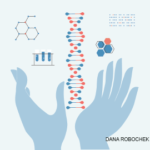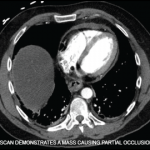 In recent years, David Beck has become a household name in rheumatology circles for the pivotal role that he played in discovering VEXAS syndrome, a monogenic, adult-onset disease that arises from somatic mutations in the UBA1 gene in hematopoietic progenitor cells. The name VEXAS is an acronym that stands for vacuoles, E1 enzyme, X-linked, autoinflammatory and somatic—terms that describe the key aspects of this condition, which can cause severe inflammatory and hematologic manifestations. While Beck and his colleagues are rightfully recognized for their unique approach to genetic research that allowed them to make this discovery (which was first reported in 2020 in 25 men with adult-onset inflammatory disease and myeloid dysplasia), they all agree that the discovery would not have been possible without the contributions of many patients who aided in the initial groundbreaking research.1 The story of Michael Milovic, one of the first patients diagnosed with the disease, shows the debt of gratitude we owe to those willing to give of themselves to help advance the cause.
In recent years, David Beck has become a household name in rheumatology circles for the pivotal role that he played in discovering VEXAS syndrome, a monogenic, adult-onset disease that arises from somatic mutations in the UBA1 gene in hematopoietic progenitor cells. The name VEXAS is an acronym that stands for vacuoles, E1 enzyme, X-linked, autoinflammatory and somatic—terms that describe the key aspects of this condition, which can cause severe inflammatory and hematologic manifestations. While Beck and his colleagues are rightfully recognized for their unique approach to genetic research that allowed them to make this discovery (which was first reported in 2020 in 25 men with adult-onset inflammatory disease and myeloid dysplasia), they all agree that the discovery would not have been possible without the contributions of many patients who aided in the initial groundbreaking research.1 The story of Michael Milovic, one of the first patients diagnosed with the disease, shows the debt of gratitude we owe to those willing to give of themselves to help advance the cause.
Michael’s Story
Michael was, for most of his life, healthy and athletic. He had passed on these traits to his children, including youngest daughter Stephanie. He was on his way to attend Stephanie’s volleyball game at La Salle University, Philadelphia, in 2009 when he developed an intense pain in his leg, nearly collapsing when getting out of his car. He went to the local emergency department and was found to have a lower extremity deep venous thrombosis.
Over the next two years, Michael developed a range of symptoms—fevers, rashes, unexplained cytopenias and auricular chondritis—that led him to Northwestern Memorial Hospital near his home outside Chicago. The doctors there were stumped, but one physician who had trained at the National Institutes of Health (NIH) suggested that Michael go there for an evaluation.
He did so and met Amanda Ombrello, MD, a clinical researcher in the Inflammatory Disease Section of the Medical Genetics Branch at the National Human Genome Research Institute, Bethesda, Md., in 2011. Michael underwent a litany of tests with Dr. Ombrello and her colleagues, but no clear diagnosis was found.
“I knew he had chondritis, but I also knew this was not relapsing polychondritis,” Dr. Ombrello recalls. “I just didn’t know what he did have.”
Michael went home to Illinois and, from 2011 to 2019, he was treated with the only medication that ever helped: prednisone. Yet he continued to decline.



